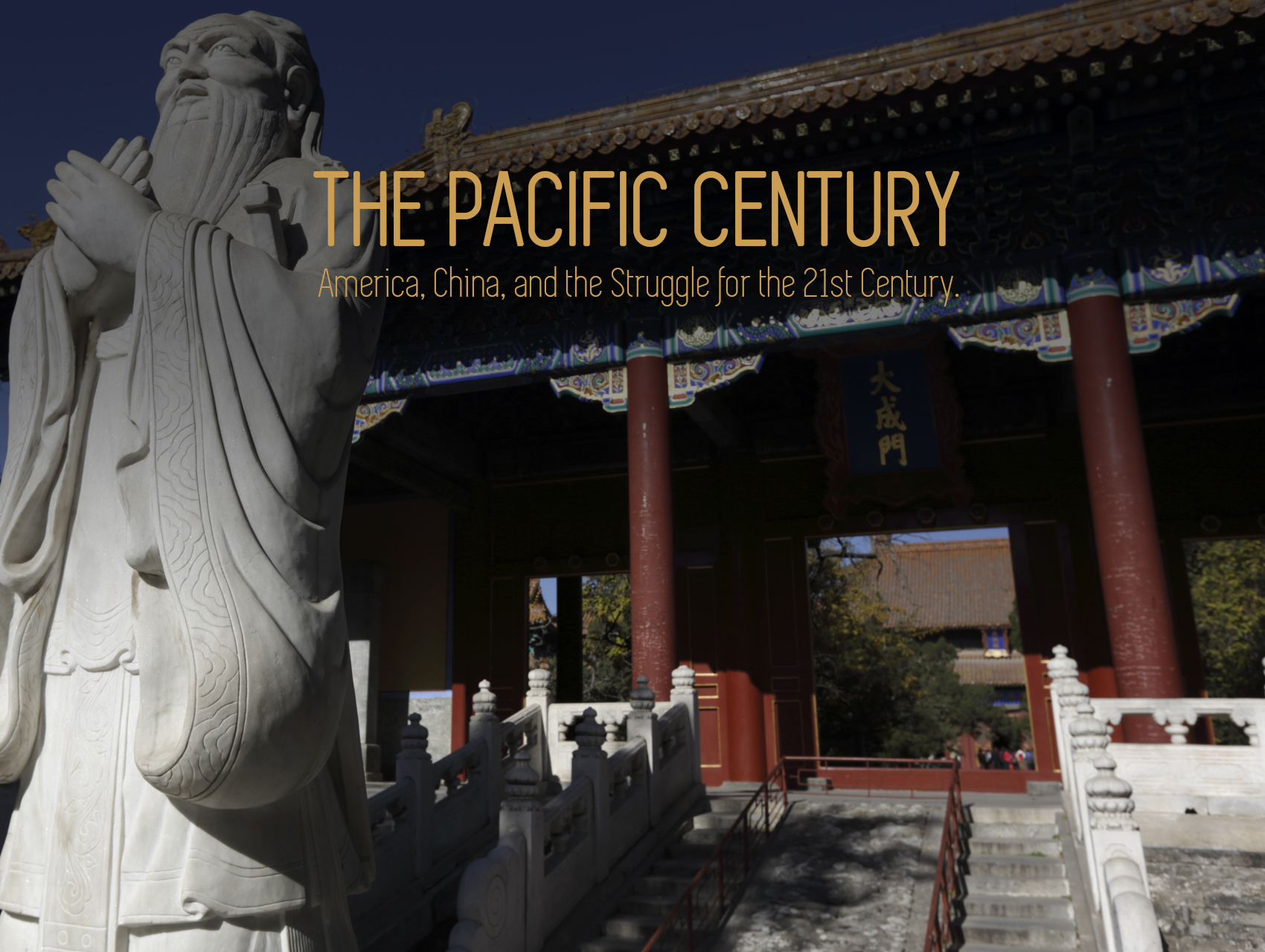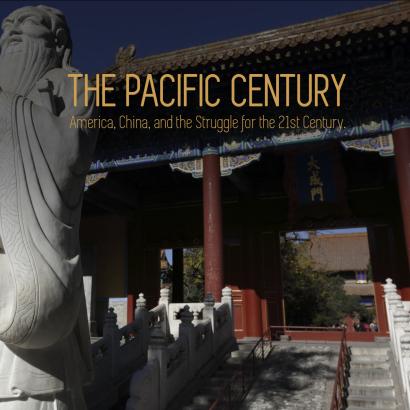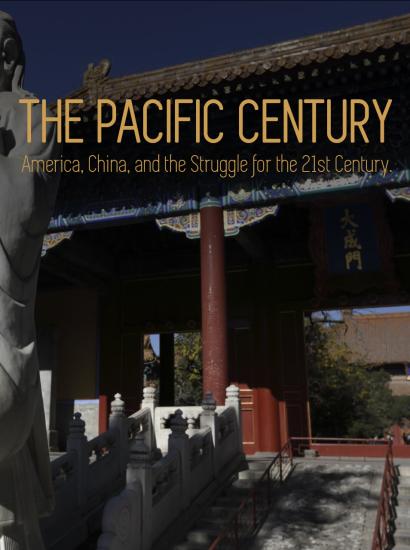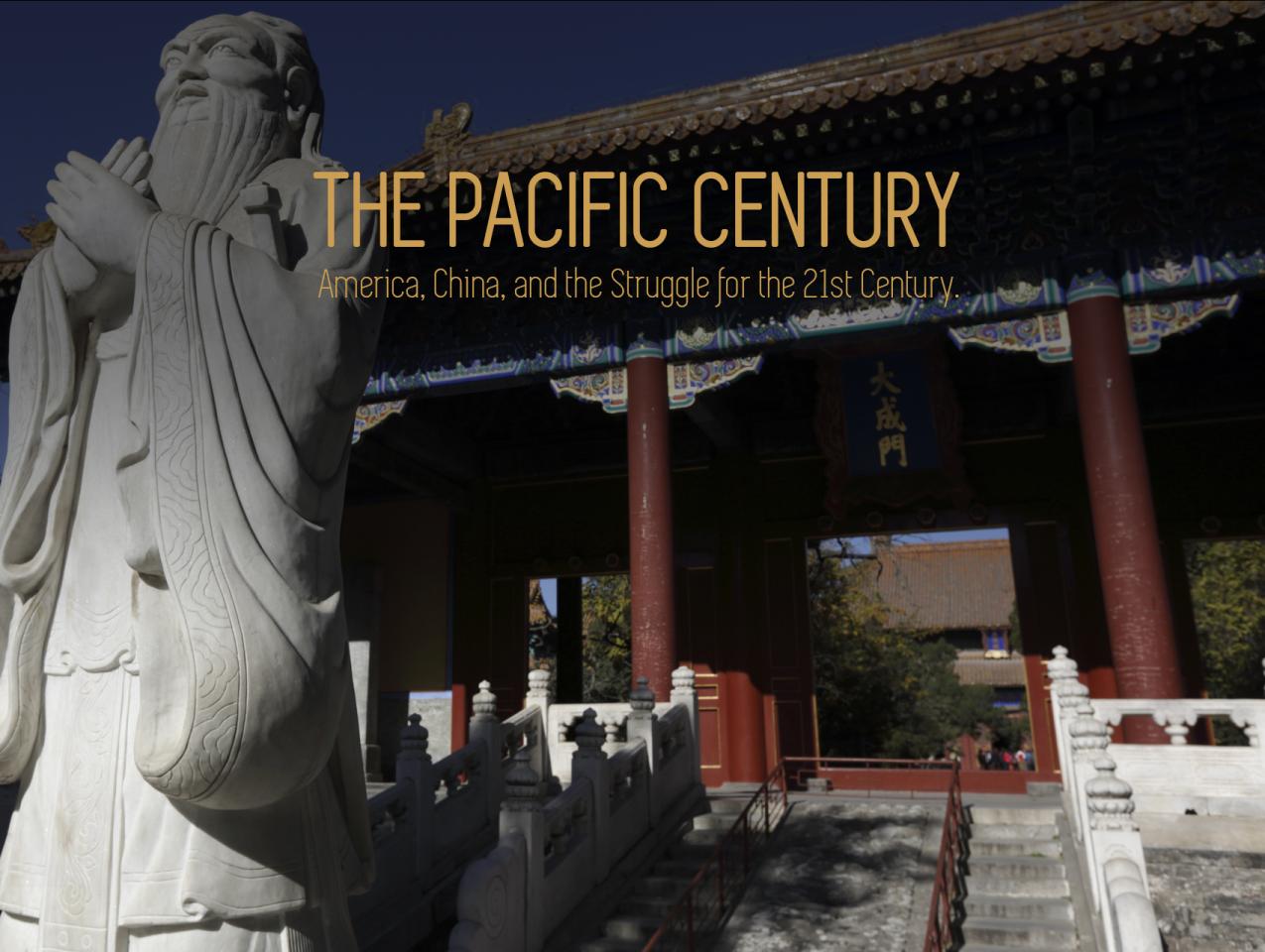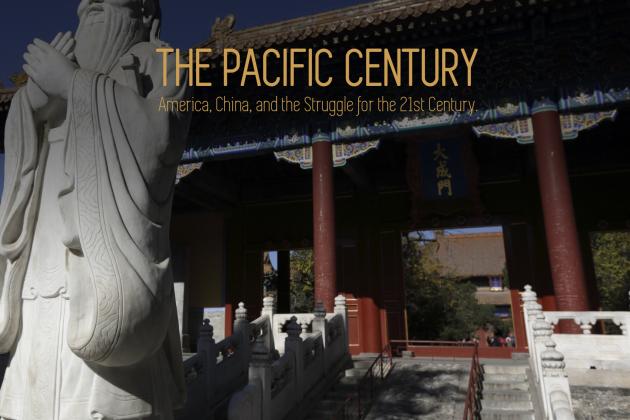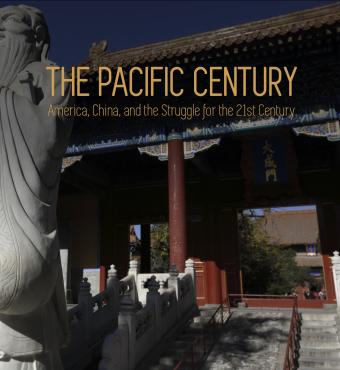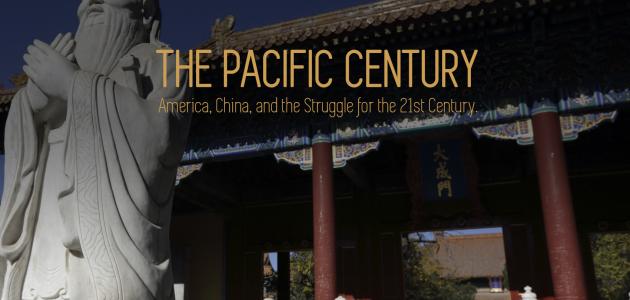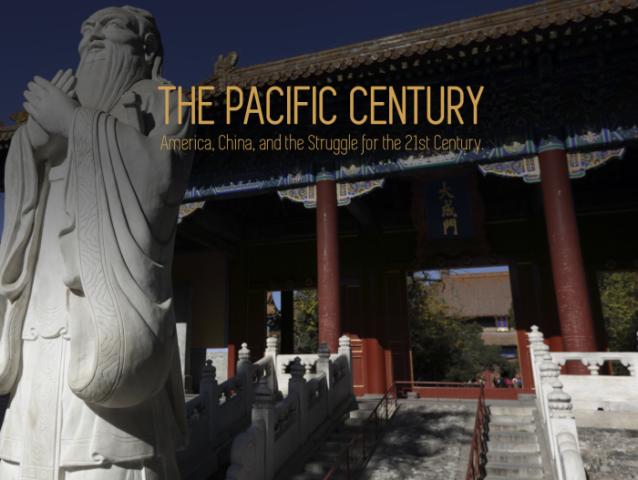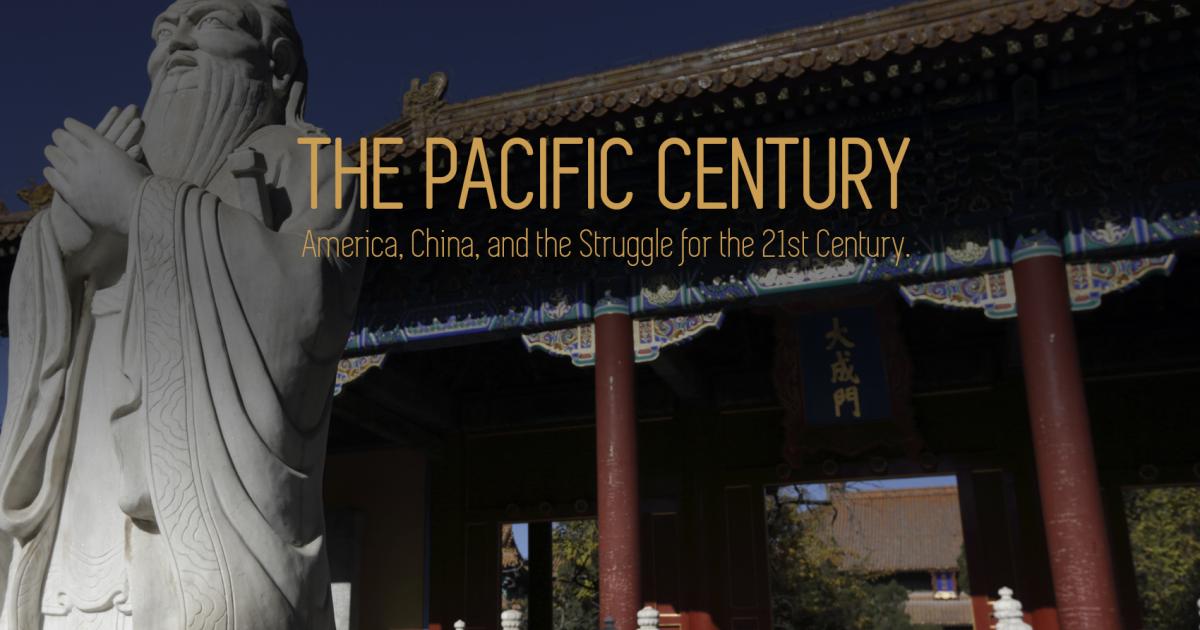Misha talks with Habi Zhang, of Purdue University, about her contention that Chinese want security, not freedom. Habi talks about how Confucianism shaped Chinese views of politics. They also discuss CCP theorist Wang Huning and how the West misunderstood China.
To view the full transcript, read below:
Michael Auslin: Welcome back to The Pacific Century, a Hoover Institution podcast on China, America, the Indo-Pacific and the fate of the 21st century. I'm your host, Michael Auslin and I am very happy to have a special guest today who I'm going to introduce in a second. But before I do that, I just want to take a moment because it was summertime and we did a few podcasts, not too many on and off a little bit, but I was hearing from a lot of people about the podcast, that they were listening to it. And I was actually really, really touched and appreciative. This podcast started in March, of 2019. So it's really just at about two and a half years. And I just wanted to say thank you to everyone who listens in. I started doing the podcast with my friend, John Yoo, without really knowing anything about podcasts and not really thinking much about podcasts, not understanding what makes for a good podcast and how people do it. And I'm really actually surprised if not shocked that so many people seem actually to listen in to the podcast from all over. I'll hear people from Asia and Europe and the likes. So I really appreciate it. And we're going to try to keep going with it. So just a thank you to folks, as we start up a new academic year. And let's get right into our interview today. I'm very happy today to be joined by Habi. Now, Habi, that's H-A-B-I, is a doctoral student in political science at Purdue University. Habi requested I not use her last name. Although if you know where we're going with the interview, you've probably read some of her pieces, particularly at Law & Liberty, but at other sites, which have been extremely thoughtful and actually generating a good amount of attention. And that's why I asked Habi to come on today. So we're going to get right into it. So Habi, welcome to The Pacific Century.
Habi Zhang: Thank you for having me.
Michael Auslin: So, as I mentioned, you're a PhD student in political science at Purdue, and I know you've written a lot about American society, you've written about religious topics, moral topics, but you've written a good deal, and very interestingly about, of course, Chinese society. Where you're from, China, about Confucianism, about morality and the like. And so before we start talking about what you've written, what can you tell us? What are you comfortable telling us about yourself? We know you're a student, but what else?
Habi Zhang: I'm really horrible at introducing myself, I always say...
Michael Auslin: We all are. Don't worry. That's okay.
Habi Zhang: I'm doing better with answering questions, but I guess social protocol dictates me at least to give you guys a few sentences of me, where I come from. Well, I guess a long story short is that I'm from China. I lived in China for 33 years, so my whole life almost. And you mentioned I'm a doctoral student at Purdue studying political science. And so currently I am working on my dissertation and in my dissertation is about Confucianism and to totalitarianism. So the very complex dissertation distilled into one sentence that would be, I'm going to argue Confucianism has in fact laid the moral and intellectual foundation of Chinese totalitarianism. So in other words, I'm going to argue that Confucianism in fact has prepared the Chinese people for accepting, even preferring a totalitarian rule for totalitarian approach to politics. So, that's the dissertation I'm currently working on.
Michael Auslin: And that's obviously controversial or in many precincts would be controversial. First, are you near completing the dissertation?
Habi Zhang: Not near, but well, my ambition is to get it done in the year? So my goal is to finish it by the summer.
Michael Auslin: Fantastic. Next summer.
Habi Zhang: Yes.
Michael Auslin: That's great. Well, I know, I mean, having done the dissertation and many of us have never to ask about when is the dissertation going to be done, but just wanted to know. So obviously at some point that will become a book and I think it'll be probably a very provocative book. So building off of that, you've written a number of essays as I had mentioned at the top of the podcast, about Confucianism. One of them at Law & Liberty, which was from earlier this year in may, was titled, What the West got wrong about China, and essentially argued that though you didn't use totalitarianism as much as you used the term authoritarianism, that Confucianism is at its core an authoritarian system. And there are of course, arguments that no, Confucianism is humanistic. And you think of the work of Theodore Barry at Columbia and many others who wrote about the humanistic tradition in Confucianism. And that would be often counterpoint with the legalism, Han Fei Zi and others, but you're actually arguing that it's the hierarchical nature and even the deeper conceptions of ancestor worship in Confucianism that lead to authoritarianism, and as you're saying now, to totalitarianism. What leads you to this conclusion in the face of so many who see Confucianism as a much more benign system?
Habi Zhang: It has long time been my suspicion that the Western has a distorted image about everything about China, from politics to culture, just to the civilization in general, so to speak. So take Confucianism as an example. When the Western talk about Confucianism, they always think about benevolence, all those pictures about many things related to humanity. True, I'm not going to argue against that, because there are many things in Confucius' teachings that do teach about the goodness of human hearts, this and that. But my approach to Confucianism is through the political lens. So basically, I mean I view Confucianism as a political theory and in that theory I argue it is actually totalitarian by nature. So here I think we should really briefly define totalitarianism before we proceed. So the 20th century literature generally, and I'm talking about in the field of political philosophy. So almost all political philosophers defined totalitarianism as a blanketed term for ideology, for totalitarian ideology. Fascism and communism. So basically there are two totalitarian ideologies, fascism and communism. Nazism is in fact is a branch of fascism. Is that right pronunciation? Fascism?
Michael Auslin: Yeah. Nazism is a branch of fascism.
Habi Zhang: Yeah. So basically there are two camps of totalitarian ideology, fascism and communism. And so political philosophers, they generally just treat totalitarianism as a blanket term for those ideologies, but I treat, here's how I define in my project. Here's how I define to totalitarianism. I see it as a unique approach to politics, is a unique way to conduct politics. By that I mean, so totalitarianism basically presuppose there is a final human utopia. This approach, they presuppose a final human utopia, a perfect state. So this starts from that premise and then so for them, so politics, the problem of politics is basically about how to engineer society, guiding humans to that paradise. So this is a totalitarian way to conduct politics and that's how I define totalitarianism in my project. So, whereas this is essentially how Confucius viewed humans in a human society. So if we look at one of Confucius' classics, The Filial Piety and in the very beginning, Confucius teaches his design for that. There is a final human, there is a perfect state. For Confucius, the perfect state is not some abstract version. It had actually existed in the past for Confucius. The perfect state is the feudal Zhou dynasty 1000 years prior to the coming year something, sorry, I don't quite remember the period of that dynasty. Anyway, so this final state had existed in the past. And so for Confucius and his mission, his political doctrine is to guide humans, guide people back to that final utopian state. And so this is how Confucius viewed politics. This is essentially the totalitarian way to view politics. There is a final human utopia and our goal is just to ship society, ship people and doing that so we can arrive at that paradise.
Michael Auslin: So you have when you, and you're making this argument, you have a very current concern in mind, meaning we could easily, and it'd be fascinating to just do the whole discussion here on political philosophy and political theory and compare Confucianism with legalism or with other varieties of both Chinese and Western thought. Although every listener will know that I'm utterly incapable of doing that, but I could at least maybe ask a few questions and get some good answers from you. But what's really interesting about your argument is that it's not theoretical. I mean, ironically. It's about theory, but it's not a theoretical argument. Your argument is that this A, predisposes China to being totalitarian and there's even within the Law & Liberty, sort of a little mini colloquium that developed, there were others who disagreed with you on that. But B, you're pointing out that Americans in particular, but the West didn't get that. And so our policy towards China has been based on a fundamental misunderstanding. Is that correct?
Habi Zhang: So could you be more specific about this?
Michael Auslin: Yeah. So our policy, as you start off the article on what America got wrong about China, you state that for 40 years and this is a point that many make and we've made a lot of times on the podcast. American policy was predicated on engaging with China so that we would ultimately change China to become more liberal, engage with the international liberal world, and China would at least at first act more like a responsible stakeholder as we used to say. And then secondly would ultimately change inside. You had US presidents of both parties say that. And your argument is that, that fundamentally misunderstands China. Is that correct?
Habi Zhang: Correct. Because I think that delusion, I call it a delusion.
Michael Auslin: A delusion, yeah.
Habi Zhang: Comes from a, how should I put it? So this is my criticism of, sorry, strike that.
Michael Auslin: That's okay. This is going to be great. No, I mean, want to hear, you're able to read this stuff. You've read it much more than we have. So your fundamental criticism of Americans is what? Because I think it's very important for those who presume they understand China.
Habi Zhang: Let me start from a question I had for a long time. I had been for a long time curious of why American politicians or even just the scholars, they assume that as long as they help China get rich and China will eventually be liberalized, i.e. becoming more and more like America, like the Western democratic society. Maybe we can start our conversation with you helping me understand why on earth does America have such a assumption, almost a conviction that as long as, so basically prosperity necessarily leads to democracy. I don't understand why people would think that because 300 years ago, I don't think America was that rich. I don't know the GDP of America in the 19th century, but I doubt America was that rich. So maybe you can help me understand why we have this delusion, prosperity necessarily leads to democracy.
Michael Auslin: Well, that's a great question. If I tried to answer my deep ignorance of America and of politics would be revealed. So I'll probably not try to answer that, but I think you've actually put your finger on something core. I think it goes back to questions, longstanding questions in political science about the role of an independent middle class, which we did have in America, in the colonial period, demanding political freedoms that's to put it relatively crassly. And actually by comparison with many Europeans in the 18th century, Americans were better off. There was not the same type of poverty in America, simply because of the natural riches. And nor did we have an urban poor in the way that you had in Europe, for example, in the 18th century. All of that developed, but the bedrock of individual sort of yeomen farmers, free middle class had already been solidified in America.
So your question is actually very interesting one, because it's a question of political perception on the part of Americans as to how the world changes. And there's a debate in America that's been going on about the American role in the world and whether Americans because of their position from the colonial and early Republic period on were determined to change the world in their image or whether that was a later development. Did that come about only with the rise of American colonialism in the 1890s, in the Philippines and intervention in Cuba and the Spanish American War. So you're asking, I think some of these sort of fundamental questions, but more specifically and I can probably hear some listeners screaming this already, is the postwar, the post Cold War consensus. The Washington consensus that once communism in the Soviet Union had been defeated, then clearly the only viable sociopolitical program out there was liberal capitalism as we understood it. And with the late 1980s, early 1990s collapse of the Soviet Union and the reform in opening up in China under Deng Xiaoping, the presumption was, well, of course. This has been proved. So to get rich, whether Deng said it was glorious or not, was also in the American eyes to become liberal because otherwise the system wouldn't work and you would have through wealth distribution, a growing middle class who would therefore demand as they did in Europe, greater political freedom. So it was a self reinforcing system. And I think your question gets to this moment in time, the end of history moment in American belief about both global development and the progress of world history, that as you point out in this article, What the West got wrong about China, then guided the following 30 years of development and interaction between the West and China. Your point as I take it, is that not only was that fundamentally wrong, we all along the way, weren't in essence doing our due diligence to understand actually what was happening in China. So let me having talked a lot now, let me turn the question back on you. If I've, at least as I understand it, given a bit of an explanation about why Americans would think that getting rich leads to liberalism, let me ask you a different question. Why do you think that after a century and more of study of China and of Confucianism in Chinese thought, granted at varying levels of sophistication, but why do you think that Americans fundamentally misread Confucianism and therefore misread the nature of China?
Habi Zhang: Okay. So two things. First, just a quick response to what you just said. So you mentioned this Washington consensus and so in a way, actually, I'm happy to see that with the past two decades of empiric evidence, now we see the Washington consensus just collapsed in the face of the empirical evidence in China. So now China is super rich, but of course, I mean, in terms of the overall GDP not in terms of the per capita personal income, but China is quite rich. That's just irreducible. Okay. So back to your second question. So sorry, could you repeat your question?
Michael Auslin: Yeah, it's a simple one that honestly, maybe it takes an American who was part of this to study, but why did Americans get Confucianism so wrong if we've been studying it for a century? As you look at the American arguments about Confucianism, what was wrong? Where did we go? What was the original sin?
Habi Zhang: Okay. Let's just put Confucius aside for a second. Now I remember your question.
Michael Auslin: Okay.
Habi Zhang: Why after centuries of studying China, why America got it wrong fundamentally? Okay, so the reason is that America studies China within the Western framework. By that, I mean confined in your own self-referential imagination. It's almost impossible for Americans or westerns to ponder another reality. I don't know if that English makes sense. So get back to my first question to you. Actually, I had my own answer to that question.
Michael Auslin: Oh, well I wish I had known that I wouldn't have talked so much. So give us your answer to the question.
Habi Zhang: No, I want you to. Just so this is how I think, so through dialogue. This is how I can think and talk better than doing a monologue. So I think for Americans, you people take democracy or freedom or all those democratic ideas, equality, freedom, all the rest as given and you think all those things are universal values. They must be appreciated and valued and chosen by all people across cultures, across civilizations. But I don't think that's the case. The Why American got China wrong is because China is a completely different civilization. And the values there are different, are fundamentally different from the values here. So let me put this way. In all those so-called self, what's the word? Self evident. You know all those self evident...
Michael Auslin: Self evident. Yeah.
Habi Zhang: Yeah. Those self evident truth like individual has the intrinsic rights to life, liberty and prosperity. None of that exists in Chinese culture. None of that is being talked about in Confucianism. No, those are not ideas in Chinese culture.
Michael Auslin: But to counter, not to counter it, but to offer a complication. I mean, clearly in Western political theory, we have long experience with arguments for authoritarian, if not totalitarian approaches. Plato in the Republic is essentially authoritarian where the state, as you write in this great piece. Again, the piece is What the West got wrong about China on Law & Liberty, among others, where you write, "The state is prior to the family in China. Whereas in the West, we take it as individuals," and yet for Plato in the Republic, the state is prior and children are to be taken away from their parents and they are to be segregated in terms of their natural abilities. So I'm not arguing that what you're saying about us is wrong, but I am interested in that we do have the intellectual background to see authoritarianism or totalitarianism, to recognize it and even to prescribe it for societies.
What interests me is the bigger argument you're making that we somehow willfully missed this in China. And that's what I'm wondering, why you think that might be. Maybe a way to get at this and in one way, or even in a reverse way is to talk a little bit about another article that you wrote, which was on Wang Huning, the man who understood America, who sits on the Politburo now, is called Xi Jinping's brain, perhaps was the most fundamental theoretician or thinker even for Hu Jintao, possibly even Jiang Zemin. And you talk about his 1988 book, America against America, which is not unbelievably, is not translated and has to be. And I actually talked about Wang Huning with David Ownby and some others on an earlier podcast. But you wrote a very long, very interesting article again at Law & Liberty about the man who under the Chinese who understood America, Wang Huning. If we didn't get China, as we've been talking about, we didn't understand China, why could somebody like Wang Huning understand America? Maybe it's a back door into trying to understand the intellectual blindness that Americans have. Because you write about how Wang came here in 1988, he traveled to 20 or more states and universities and all these people and met all these people, interviewed these people and wrote a really perceptive book that actually, as you said, quotes from all the great thinkers in Western history. Why could Wang steeped in Chinese communist teaching and learning, why could he understand America but we in a free system can't understand China?
Habi Zhang: Wang, he understands. Yeah, he understands. Yeah. I'm glad you brought up Wang Huning. I was just going to cite him as a evidence of me saying that Chinese, the moral ideas in the two civilization, the two society, China and America, they are fundamentally different. Here in America, freedom is the moral ideal for most people, at least, maybe until now, but at least for the past few centuries, the freedom is the highest value, highest ideal. People value freedom over many other things. But freedom is not the moral ideal in Chinese culture. It has never been. And nowhere in Confucius' writing you receive freedom. Freedom really is a new concept, is a new thing imported in China in the early 20th century. So that's why, so my point is that the moral ideals in both cultures, they are fundamentally different. So now back to Wang Huning. Wang Huning does understand America cognitive very well, but he does not approve of Western civilization. He does not approve of American ideas. He understands all those democratic ideas, theories, but he does not approve of those. He is fundamentally an heir of Chinese culture, of traditional Chinese culture.
Michael Auslin: So do we have... So many questions I want to ask. Let me ask a quick one and then another one. First you mentioned that freedom was a new concept, brought into China in the 20th century. Was there a word in Chinese for freedom before that?
Habi Zhang: No.
Michael Auslin: And what word was created to express the concept of freedom and what does it really express?
Habi Zhang: This is... Okay, so I cannot answer this question just till now. One of my, one chapter is okay, sorry. Yeah, strike that.
Michael Auslin: That's okay.
Habi Zhang: So you know all those traditional Confucius ideals, none of that include freedom. We have loyalty. They are... Sorry. They are just in Chinese in my mind and I don't know quite how to accurately translate them into English. Yeah. Let me just leave it here saying that no freedom. Freedom is so many concepts like science, democracy, freedom and this and that. They are really just a new export to China in the early 20th century. And there were a few people, Liang Qichao is the most paramount intellectual in the late 19th century, early 20th century who translated, not translated actually he created Chinese words for those alien concepts, such as socialism, such as freedom and this and that. So this is that I know...
Michael Auslin: It's interesting. And one reason I asked because in Japan, the word for freedom, jiyu, was also relatively new, but it came in the 19th century in particular, in the connection of political movements, the people's and freedom movement. And of course, we also know that a lot of these concepts were mediated to China, through Japan. As the Japanese intellectuals struggled with them, and I was actually just trying to find when jiyu first became used, I can't actually find that, I don't unfortunately remember. But by the mid 19th century it's being used.
Habi Zhang: It's so interesting you mentioned this. In fact, Liang Qichao used lots of Japanese words to create those new Chinese words for freedom and democracy, socialism. The Chinese word freedom in Chinese sound, zìyóu, is just as similar to the Japanese.
Michael Auslin: Jiyu.
Habi Zhang: Yeah, so Liang Qichao studied in Japan and so a lot of European socialist ideas were exported to China through Japan. And so all those alien words, concepts, they created the Chinese words based on through, maybe they adapted lots of which Japanese words to create the Chinese version of those concepts.
Michael Auslin: Right. So before we get too much into philology and the concept of jiyu in Japanese and what it is in Chinese, I still was taken by your point about Wang Huning. Obviously he's not a fan of freedom and of the system. And of course he hasn't written anything publicly for decades since he went into high government service. Well, let me ask a question this way. Is there anyone given that you've read what Wang Huning has written about America, his perception or his perceptive insights about America. Is there anyone in America who's written similarly perceptively on China? I mean, first of all, Wang is now in the Politburo, he's in the standing committee. He is among the seven most powerful people in China. We certainly don't have anything like that here. But who of influence in America has written as perceptively about China as Wang Huning has about America? Anyone in your view?
Habi Zhang: No. No, I don't think so. That's something that's why I'm quite worried about this. Cause I truly think for China or for the Chinese communist to America almost is an open book because this is an open society. And so you are not hiding anything and all those politics, political games, they're quite transparent for the outside world to see. But now China and the communist party, they are such a opaque organization. And as I said at the beginning, cause America really just has this delusion that all those values that you cherish, in fact, those are not values. Those are really traditions because for your forefathers, I don't think freedom is such a self evident truth. I mean, I don't think this, I don't. Okay. So I don't think that those are self evident truths. They are culture bequest handed down from your forefathers. Like I said, I read in my articles, American freedom is prior to American Republic. Those are not abstract ideas. They are concrete culture bequests.
Michael Auslin: So then why do we though make that presumption? I guess your point is we see it as universal and therefore we make the presumption yet we have the texts, we have it in front of us from China. Do we just not read Chinese well enough? Literally, do we just not understand it when we read it? Are our scholars not that well trained? This is an argument that others have made about, first of all, trying to understand pronouncements by the Communist party, even when, and particularly when they translate it, you simply can't take it all at face value. There are hidden meanings. There are different meanings. This is stuff that people like Tanner Greer and others have talked about. Is it just that we're not trained well enough to really understand, whereas in English it seems pretty straightforward? No?
Habi Zhang: Okay. So here comes to mind another argument that I think for a long time, American study of Chinese politics only focused on the party, only focused on the leadership, whereas grossly oversight ignore the people, the traditional political, traditional Chinese political culture. And that's why you have long time you have such a distorted image of Chinese politics. You have to really phrase. So by that, I mean, if you want to study American politics, you have to look at American people. You have to take a close look at the American national character otherwise you wouldn't understand American politics just by focusing on the two parties. That's just really a small part of the story. But I doubt, correct me if I'm wrong, I doubt there are many scholars that really spend time trying to understand Chinese people.
Michael Auslin: The argument be that because China's not a democracy and the people have so little say that you comparatively need to study the Chinese people for political understanding less than you study the party. I'm not saying you don't, people I don't think would say don't study the Chinese people.
Habi Zhang: Do you know what the Chinese people want? They don't want freedom. They want security. They want...
Michael Auslin: They don't want freedom, they want security.
Habi Zhang: No, they want... Yeah. They want to be taken good care of. They don't care...
Michael Auslin: So you're saying the people in the party are in alignment.
Habi Zhang: Yeah, exactly.
Michael Auslin: Okay.
Habi Zhang: I'm trying to make argument that it is the people who really carries the party forward. The people that, oh gosh, the hundreds of millions of law abiding citizen, they prefer security, they prefer a benevolent father to take good care of them. They don't really want freedom.
Michael Auslin: So, that's an incredibly important point and one that I think many people in America are let's be honest, are very hesitant and worried about making. One thing that you hear very often these days is when people are talking about China, they're talking about policy issues. China wants to do X. China wants to do Y. Increasingly they preface it by saying, "Now I'm talking about the party, not the people," because the presumption is that the people want freedom. That goes to your point about this being a universal desire and a fear. Again, I think we have to be honest here, a fear of first of all, being charged as being insensitive or even racist that Chinese don't understand or don't want freedom, don't want democracy because all people do as well as a real concern, I think with accepting the implications of what that means. The implication of presuming, not that the party and the people in China are opposed to each other, but that they're actually aligned because that would make American policy much more difficult. Because the presumption is you just have this rapacious, oppressive, totalitarian authoritarian party that is making China a threat to its neighbors or a threat internally to minorities or the like, but if that's not the case, if it is the case that this is widely shared by the people in China, then I think you have really significant implications for America's interaction with Chinese as well as policy and I think that a lot of people want to shy away from that.
Habi Zhang: Sorry. Shy away from what?
Michael Auslin: Shy away, meaning that they don't want to acknowledge that that may be true because it's very worrisome.
Habi Zhang: It is. But that's the truth. I mean, at least that's the truth as I see. I mean, it is a really hard to swallow, but that's the truth I see. That's the argument I'm trying to make and yeah.
Michael Auslin: Yeah. I understand. I think that there's a lot. I haven't seen that particularly in your writing. I mean, you take a much more, at least in these, a very impressive academic almost top down approach to saying this is what political philosophy is. I think it'd be really interesting to see an argument from the bottom up.
Habi Zhang: I wrote a second article after that and the title is The Chinese Story, and in this piece I focused on to depict what the Chinese people are like. And yeah, what the moral ideals in that culture is. The moral ideal in that culture is not freedom, it's security, it's harmony, it's obedience, it's conformity and all those moral ideas and they are also moral facts, they are just not the ones you guys are used to in the West. And I think it is time for Americans to pause and just to walk outside of the Western framework and just to look at China in its own terms and to take a good close look at the people. Just to think Chinese civilization is the only civilization that has sustained for millennia. So there has been reason that, and the people and a major player in that picture, cause this goes back to my thesis about Confucianism predisposed the Chinese people to a totalitarian or authoritarian rule. And that's because they want harmony. They want security. Yeah, because freedom is actually quite messy and freedom is very costly.
Michael Auslin: Yes.
Habi Zhang: As Americans, you must know this very well. And it actually costs a lot to fight and maintain freedom and no, none of that is really the ideas for Chinese. They want different things and that is because of the teaching of Confucianism that has going on for millennia.
Michael Auslin: Where is that article by the way that you mentioned, The Chinese Story? I've looked and that one I didn't find.
Habi Zhang: No, no, I haven't got it published. I just, I wrote it and I was... Yeah.
Michael Auslin: Well that we would like to see. Look, I think we're almost out of time. You have also written and I don't actually want to get into it today because it's a completely different issue, but you've written a lot on how what you see happening in America is reflective of what you saw in China in terms of where our society's going in terms of the degradation of public discourse, of public shaming, of the coddling of children. You wrote a big piece for the Wall Street Journal on that. So there's a lot of other writing. I think for the purposes of listeners, we have to, because they want to look you up, so I think we have to mention your name so they can look up your writings. So Habi, H-A-B-I, and Zhang, Z-H-A-N-G. That's what you publish under and so people can look you up there. I think when this piece on The Chinese Story comes out, I think that will be extremely provocative if not controversial. And I think it's going to be something that is going to be very interesting to read because you're really taking on a lot of the longstanding shibboleths, the longstanding beliefs of the Chinese studies community here and quite frankly, the policy community. So this was a lot of pretty deep stuff talking about political theory, but then translating it to where we are today. And I think that was really important. So Habi, good luck on finishing the dissertation. I think when you do and you ultimately turn it into a book again, it's going to be a very provocative book. Are you planning, do you think you're going to be teaching in an American university? Will you go on the job market or what's your plan for after the dissertation?
Habi Zhang: I want to apply for Hoover.
Michael Auslin: That's great.
Habi Zhang: I mean it. I have no hope of find a teaching position on campus. Even with all my victim privileges, I don't think I'm able to find a teaching position on campus.
Michael Auslin: Well, I think that the fact that you've been writing a lot is going to quite honestly, it's going to help you with a lot of different places. I think Hoover would be a great place and there are others as well. So when the time comes, I'm sure a lot of the listeners will have recommendations for you and suggestions. And obviously we're happy to help in any way we can. But good luck finishing up if you're going to finish it by next summer, hopefully. And then I think turning it, hopefully turning it into a book, but continuing to write really interesting articles. So again, Habi and just for the listeners, I have to say Habi Zhang, but say Habi, you can look up at her articles on Law & Liberty, Wall Street Journal, Imaginative Conservative and other places. And really thoughtful and provoking insights into both America, but also China. So thank you for joining us on The Pacific Century and I hope we'll have you back some time to talk more.
Habi Zhang: Oh thank you.
Michael Auslin: So for The Pacific Century, this is Michael Auslin. We will see you again in a few weeks. Bye bye.
Speaker 3: This podcast is a production of the Hoover Institution, where we advance ideas that define a free society and improve the human condition. For more information about our work or to listen to more of our podcasts or watch our videos, please visit hoover.org.







